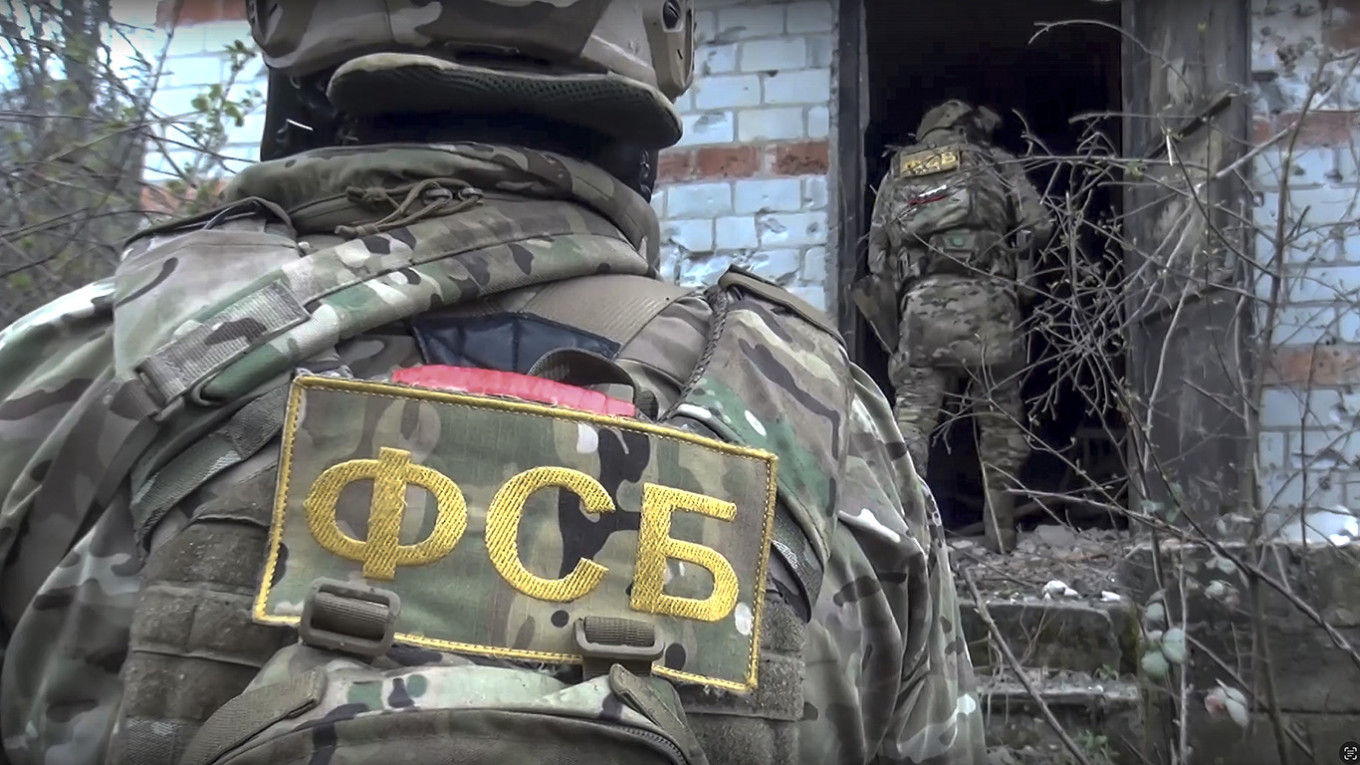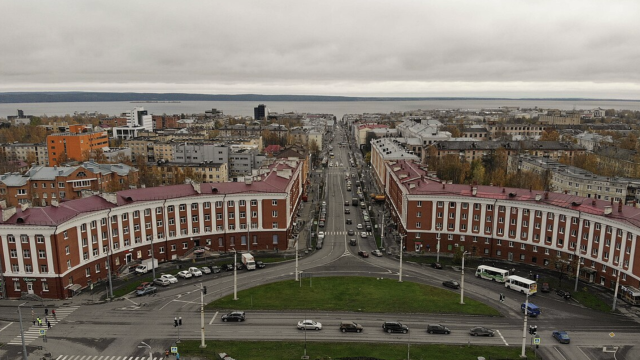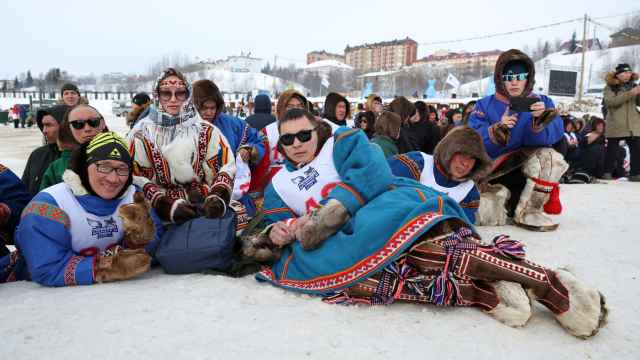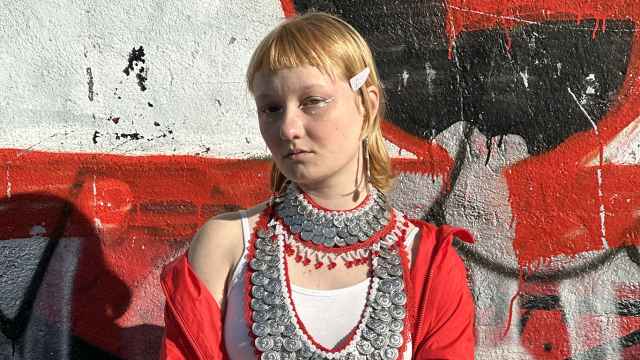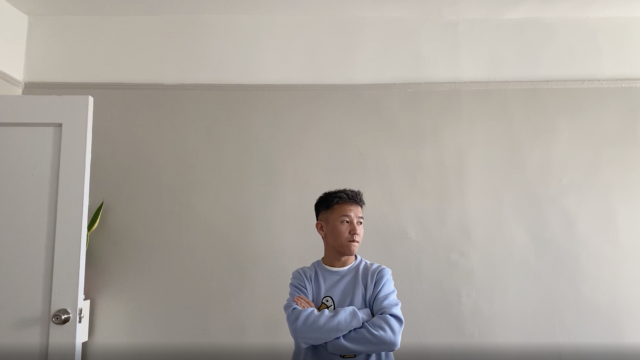This month, Russia’s Federal Security Service (FSB) released a list of 172 ethnic, Indigenous rights and decolonial groups and media outlets designated as “terrorist” organizations.
Though news of the sweeping designation first broke in November, authorities delayed publishing the full list of targeted organizations, keeping most members of the vast Indigenous rights community on their toes.
Now, activists whose groups ended up on the list say they are preparing for even wider repressions against themselves and their supporters still inside the country.
“We weren’t really surprised to find our name on the list. I knew deep down that most existing groups would be there,” said Batlay Matenov, co-founder of Asians of Russia, a media outlet covering republics of Russia with Indigenous Asian populations.
“Though it turned out that half of the organizations listed there don’t even exist in real life,” Matenov said with a laugh, referring to the likes of the “Belgorod People’s Republic,” a fictional entity born as a meme on Ukrainian social media in reference to the heavily bombed Russian border region.
Alongside Komi Daily, an online publication reporting on culture and society in the northwestern republic of Komi, Asians of Russia became the first news outlet to be designated as “terrorist” by Russia.
Like members of other targeted groups who spoke to The Moscow Times, Matenov confirmed that Asians of Russia received no official notice of the designation.
Authorities claim that groups labeled as “terrorists” by the Supreme Court are “structural subdivisions” of the Free Nations of PostRussia Forum, a Poland-based organization founded in 2022. The forum describes itself as a platform advocating for the decolonization and fragmentation of Russia into 41 independent states.
Most organizations that made the list have publicly denied having any prior ties to the forum.
Some also flat-out denied that their movements have ever promoted secessionism.
“Independent Sakha Movement has no links or contacts with the Free Nations of PostRussia Forum,” a representative of the group from Russia’s Far East republic of Sakha (Yakutia) told The Moscow Times, requesting anonymity for fear of facing legal repercussions for membership in a “terrorist” organization.
“We work independently, representing the people of Sakha and focusing on the protection of their rights and cultural heritage. Attempts to link us to this organization are false and serve as a tool for discrediting us,” they added.
In July, the Independent Sakha Movement became one of the 54 Indigenous groups added to Russia’s growing list of “extremist” organizations over its ties with the non-existent “Anti-Russian Separatist Movement” outlawed earlier that year.
“This latest ruling comes with serious risks for our work, including criminal persecution of our members and partners — and possibly their relatives,” said Independent Sakha’s representative.
Late Kremlin critic Alexei Navalny’s movement is another major opposition force to be labeled “extremist” by the authorities.
Since the designation was issued in 2021, employees of Navalny’s activist organizations, volunteers and supporters have faced criminal prosecution.
On Friday, a court in Russia’s Vladimir region sentenced three former lawyers for Navalny to prison on “extremism” charges.
Russia’s Indigenous activists fear the scale of repressions against them could be far larger.
The “terrorist” label comes with more severe punishment for members and supporters of a group than the “extremist” one, with up to 20 years in prison for those convicted of “establishing a terrorist organization.” Russia’s ethnic republics are also known to have exceptionally sophisticated security apparatuses.
Matenov of Asians of Russia believes that the designation will amplify the risks of arbitrary searches and arrests of activists’ relatives inside the country.
“Our republics are small. For example, there are just about 300,000 people in Tyva — everyone there knows each other,” Matenov told The Moscow Times. “I think this designation is horrific.”
Unlike many of her colleagues, Buryat activist Marina Khankhalaeva has spoken at several events organized by the Free Nations of PostRussia Forum. Her name is also listed in the “speakers” section on the Forum’s website.
Yet Khankalaeva, the founder of the Tusgaar Buryad-Mongolia movement and Buryat Independence Committee, noted that labeling the two movements she leads as “structural divisions” of the Forum is “completely incorrect.”
“The forum is simply a platform for speakers, which gives us a chance to be heard, including at the European Parliament and the UN level,” explained Khankhalaeva. “We have no direct connection to it.”
A fierce advocate for the independence of her native republic of Buryatia, Khankhalaeva said she and her supporters always knew that “opposing the Russian Empire and the Kremlin comes with consequences.”
“The Taliban are being removed from the list of terrorists, while we are being added to it,” Khankalaeva told The Moscow Times. “When I look at this list, I think we are in good company: there are many peace-oriented organizations on it.”
“We have never said anything extremist, never called for violence or anything that falls under the conventionally accepted definition of ‘terrorism’...We advocate for achieving our goals strictly with non-violent means,” said the Buryat activist.
Dr. Ekaterina Zibrova, a research associate at The Wits Center for Diversity Studies in Johannesburg, believes that the “terrorist” designation falls within a tried-and-true policy of “securitizing ethnic identities, which the modern Russian state inherited from the Soviet Union.”
“In the Soviet Union entire ethnic groups were labeled as ‘enemies of the state’,” said Zibrova, referring to cases such as the Holodomor in Ukraine and mass deportations of Ingushs, Chechens, Kalmyks and other ethnic groups over their alleged collaboration with Nazi Germany.
Zibrova noted that many Indigenous groups included on the “terrorist” list did not promote any political agenda before the designation, focusing on promoting language and cultural rights.
“By labeling these groups as extremists and terrorists, by acknowledging them as threats, the authorities are also empowering them with the ability to shape social and political discourses,” Zibrova told The Moscow Times.
“Even if these people did not position themselves as political actors before…this decision has pulled them into the political realm,” she said.
A Message from The Moscow Times:
Dear readers,
We are facing unprecedented challenges. Russia's Prosecutor General's Office has designated The Moscow Times as an "undesirable" organization, criminalizing our work and putting our staff at risk of prosecution. This follows our earlier unjust labeling as a "foreign agent."
These actions are direct attempts to silence independent journalism in Russia. The authorities claim our work "discredits the decisions of the Russian leadership." We see things differently: we strive to provide accurate, unbiased reporting on Russia.
We, the journalists of The Moscow Times, refuse to be silenced. But to continue our work, we need your help.
Your support, no matter how small, makes a world of difference. If you can, please support us monthly starting from just $2. It's quick to set up, and every contribution makes a significant impact.
By supporting The Moscow Times, you're defending open, independent journalism in the face of repression. Thank you for standing with us.
Remind me later.



